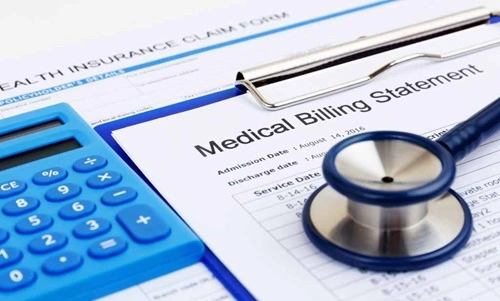No you cannot go to jail for simply failing to pay medical bills. In the United States, millions of people struggle with medical debt every year. Unexpected hospital stays, surgeries, or emergency treatments can easily leave patients with thousands or even hundreds of thousands of dollars in unpaid medical bills. However, ignoring those bills or failing to respond to court actions related to them could still lead to serious financial and legal consequences. Medical debt is considered a civil matter, not a criminal offense.

Medical Debt Is a Civil Issue, Not a Crime
Under U.S. law, debt is not a crime. That includes credit card debt, personal loans, and yes—medical bills. The United States abolished debtors’ prisons in the 19th century, meaning you cannot be incarcerated just because you owe money to a hospital or collection agency.
When you fail to pay a medical bill, your healthcare provider or its billing department will likely send reminders and eventually turn the debt over to a collection agency. From there, it may appear on your credit report and negatively impact your credit score.
If the debt remains unpaid, the collection agency can file a civil lawsuit to collect the money. If they win, the court may issue a judgment against you, allowing them to garnish wages, seize funds from your bank account, or place liens on property. But again—none of that involves jail time.
When Jail Becomes a Possibility (Indirectly)
While you cannot go to jail for owing medical debt, you could face legal trouble if you ignore court orders or fail to appear for a debt-related hearing. Here’s how it can happen:
1. You’re Sued for Unpaid Medical Bills
The creditor or collection agency files a lawsuit. You receive a court summons notifying you of the hearing.
2. You Fail to Appear in Court
If you don’t respond or show up, the court can issue a default judgment in favor of the creditor.
3. You Ignore a Court Order
After a judgment, the creditor might request a “debtor’s examination,” where you must appear and disclose your financial information. If you fail to attend or disobey the judge’s order, the court could issue a bench warrant for your arrest—not for the debt itself, but for contempt of court.
This process is often misunderstood as being “arrested for debt,” but legally, you’re being penalized for disobeying a court order, not for being in debt.
How Collection Agencies and Courts Pursue Medical Debt
If your medical bills are sent to collections, the agency will try to contact you by mail, phone, or email. They may offer payment plans or settlements. If they sue, you’ll get a formal court notice.
Failing to respond is a big mistake. A court judgment gives creditors the power to:
- Garnish wages (in most states, up to 25% of your disposable income)
- Levy bank accounts
- Place liens on real property
Some states have stronger consumer protections than others. For instance, certain states restrict wage garnishment for medical debt, while others exempt specific assets like Social Security or retirement income.
Protecting Yourself From Legal Trouble
If you’re struggling with medical bills, here’s how to avoid escalating the problem:
1. Never ignore medical bills or court notices. Even if you can’t pay, respond to every notice you receive.
2. Ask for a payment plan or financial assistance. Many hospitals offer “charity care” or income-based hardship programs.
3. Know your rights. Under the Fair Debt Collection Practices Act (FDCPA), collectors cannot harass, threaten, or mislead you.
4. Seek legal help. Nonprofit legal aid organizations can help you respond to lawsuits or negotiate debt relief.
5. Check for billing errors. Medical billing mistakes are common; always request an itemized bill and verify charges.
The Bottom Line
You cannot go to jail for unpaid medical bills—but you can face lawsuits, wage garnishments, and credit damage if you ignore them. Jail only becomes a risk if you disobey a court order, not for the debt itself.
In other words, the law protects you from imprisonment for being in debt, but it doesn’t protect you from the financial consequences of ignoring it. If you’re overwhelmed by medical bills, communication and action—not avoidance—are your best defense.

Our dedicated team gathers information from all the reliable sources to make the law accessible and understandable for everyone. We provide the latest legal news stories from across the country, delivered straight to you.
